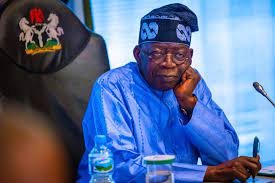AS PREPARATIONS are made to return the 400,000 Nigerian refugees who are stuck in Cameroon, Niger, and Chad, the Federal Government has voiced concerns.
The Federal Commissioner, National Commission for Refugees, Migrants and Internally Displaced Persons, Alhaji Tijani Ahmed, stated this at the Technical Working Group meeting on Wednesday in Abuja.
Ahmed stated that further repatriation plans are in the works and that 3,000 refugees were repatriated last week thanks to the efforts of the technical working group and Borno State Governor Prof. Babagana Zulum.
According to the NCFRMI boss, the tripartite agreement has been examined, and the appropriate actions to carry on with the repatriation process are being contemplated.
He stated that talks were still going on to make sure the procedure went well and acknowledged the role that the UN High Commissioner for Refugees played in the return.
Ahmed further said that the Technical Working Group was reviewing past actions and planning future steps, including seeking government and international partners’ support.
He said that the goal was to ensure that the repatriation exercise became a permanent process in the coming weeks.
The federal commissioner, however, underscored the need for governments’ support and the involvement of key stakeholders, particularly international partners.
“We have not less than 400,000 refugees across these zones – Cameroon, Niger and Chad. 3,000 refugees were returned last week Sunday through the efforts of the governor of Borno.
“We have reviewed the processes here, and then we also try to look at what is required of us to do before the continuation of this repatriation.
“UNHCR is key in this direction because they are the third party in the repatriation exercise assigned through our agreements.
“We hope that in the next few weeks, this repatriation will commence and we will continue the exercise,” he said.
On her part, the UNHCR Deputy Representative, Bernadette Muteshi, expressed the UNHCR’s openness to discussing repatriation, deportation, and the welfare of internally displaced persons.
READ ALSO: Police Foil Cable Theft as 25-Year-Old Nabbed in Ogun
Muteshi noted that the Technical Working Group aimed to support the governments in ensuring the tripartite agreement was followed and adhered to.
“What will be different this time around is that we are leaning greatly on the governments’ responsibility for leadership and ownership of the process.
“We are here to walk along with both governments to ensure that the contents of the tripartite agreement are followed and adhered to.
“But honestly, it’s really about both governments taking leadership and ownership for their nationals in this particular exercise,” she said.




















